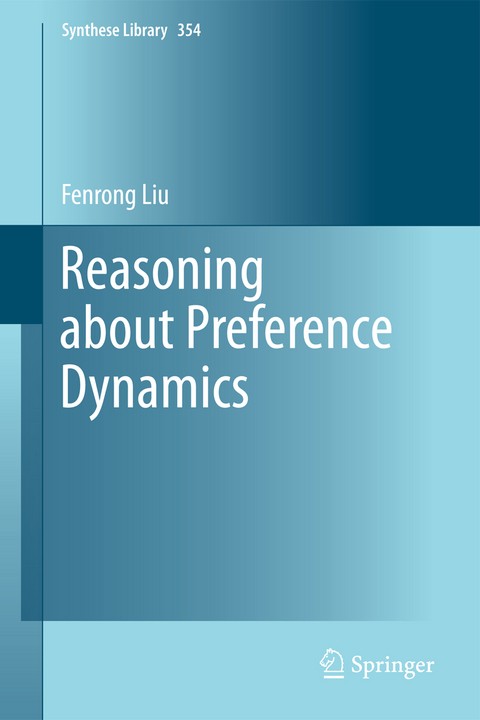
Reasoning about Preference Dynamics
Springer (Verlag)
978-94-007-3630-6 (ISBN)
Our preferences determine how we act and think, but exactly what the mechanics are and how they work is a central cause of concern in many disciplines. This book uses techniques from modern logics of information flow and action to develop a unified new theory of what preference is and how it changes. The theory emphasizes reasons for preference, as well as its entanglement with our beliefs. Moreover, the book provides dynamic logical systems which describe the explicit triggers driving preference change, including new information, suggestions, and commands. In sum, the book creates new bridges between many fields, from philosophy and computer science to economics, linguistics, and psychology. For the experienced scholar access to a large body of recent literature is provided and the novice gets a thorough introduction to the action and techniques of dynamic logic.
Fenrong Liu is an associate professor at Tsinghua University, Beijing, one of the most prestigious universities in China. She received her first Ph.D degree in Philosophy at the Chinese Academy of Social Sciences in 2001 on default reasoning, a topic linking philosophy with Artificial Intelligence. From 2003-2008, she worked at the Institute for Logic, Language and Computation (ILLC) at the University of Amsterdam, where she obtained a second Ph.D degree in Science on dynamic logics of preference. She has published some 40 papers, and has organized many events, including a new Chinese conferences series on Logic, Rationality, and Intelligent Interaction (LORI). Her research is aimed at understanding how information changes guide rational agency in terms of beliefs and preference, and in modelling similarities and differences between agents, making room for agent diversity in logic. In addition, she pursues an active program in Chinese Ancient Logic, reading Chinese old texts by modern logical theories.
Preface.- Part I Introduction.- 1. Introduction.- Part II Dynamics of Information.- 2. Dynamic Epistemic Logic.- Part III Preference over Worlds.- 3. Preference over Worlds: Static Logic.- 4. Preference over Worlds: Dynamic Logic.- 5. Entanglement of Preference, Knowledge and Belief.- 6. Intermezzo: A Quantitative Approach.- Part IV Preference from Priorities.- 7. Preference from Priorities: Static Logic.- 8. Belief-based Preference.- 9. Preference from Priorities: Dynamic Logic.- Part V A Two-Level Perspective on Preference.- 10. A Two-Level Perspective on Preference.- Part VI Applications and Discussions.- 11. Deontic Reasoning.- 12. Games and Actions.- Part VII Finale.- 13. Conclusion.- References.- Index.
| Reihe/Serie | Synthese Library ; 354 |
|---|---|
| Zusatzinfo | XVI, 204 p. |
| Verlagsort | Dordrecht |
| Sprache | englisch |
| Maße | 155 x 235 mm |
| Themenwelt | Geisteswissenschaften ► Philosophie ► Allgemeines / Lexika |
| Geisteswissenschaften ► Philosophie ► Logik | |
| Geisteswissenschaften ► Sprach- / Literaturwissenschaft ► Sprachwissenschaft | |
| Mathematik / Informatik ► Informatik ► Netzwerke | |
| Mathematik / Informatik ► Mathematik | |
| Sozialwissenschaften ► Soziologie | |
| Schlagworte | Belief • Deontic Logic • deontic reasoning • dynamic epistemic logic • dynamic logic • Games • Preference • preference dynamics • preference logic • Reasoning • Spieltheorie (mathemat.) • static logic |
| ISBN-10 | 94-007-3630-4 / 9400736304 |
| ISBN-13 | 978-94-007-3630-6 / 9789400736306 |
| Zustand | Neuware |
| Haben Sie eine Frage zum Produkt? |
aus dem Bereich


